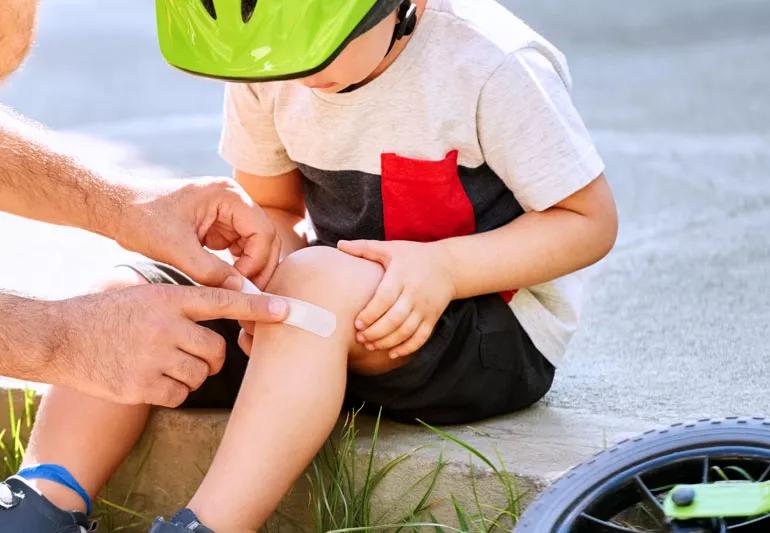The short answer from a plastic surgeon

Image content: This image is available to view online.
View image online (https://assets.clevelandclinic.org/transform/edddf4cd-f04b-421e-b8d7-37dff54d2038/dadchildBandaid-1251190594_770x533_jpg)
dad applied bandaid to child's knee
A: Airing out most wounds isn’t beneficial because wounds need moisture to heal. Leaving a wound uncovered may dry out new surface cells, which can increase pain or slow the healing process.
Advertisement
Cleveland Clinic is a non-profit academic medical center. Advertising on our site helps support our mission. We do not endorse non-Cleveland Clinic products or services. Policy
Most wound treatments or coverings promote a moist — but not overly wet — wound surface. For example, healthcare professionals usually apply a topical antibiotic ointment to a scrape or small cut, and then cover it with gauze or a bandage.
This keeps new skin and other cells alive. It also helps protect the area from dirt, germs and further injury and may feel more comfortable than leaving a wound open.
But as is true for most of medicine, there are exceptions. Small dry, scabs from minor cuts and scrapes can be left uncovered. Also, pressure ulcers on the heels can often be left open to dry.
However, if you’re concerned that a wound looks deep, is not healing or might be infected, a healthcare professional should examine it.
— Plastic surgeon Christi Cavaliere, MD
Advertisement

Delivered every Tuesday!
Sign up for our Health Essentials emails for expert guidance on nutrition, fitness, sleep, skin care and more
Learn more about our editorial process.
Advertisement
This olive oil-based soap is generally mild and safe when diluted
Protein, iron, zinc and vitamins A and C can all help your wounds heal quickly and well
Most minor cuts, scrapes and burns can be treated at home
Quick action and proper care can make a big difference
Three common causes of chronic wounds
Most recommended precautions center around minimizing bruising or swelling
Even one drink can have an impact on your cognitive function leading to slurred speech, blurred vision and impaired memory
Type 2 diabetes isn’t inevitable with these dietary changes
Applying a hot or cold compress can help with pain
Pump up your iron intake with foods like tuna, tofu and turkey